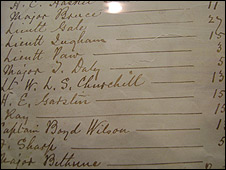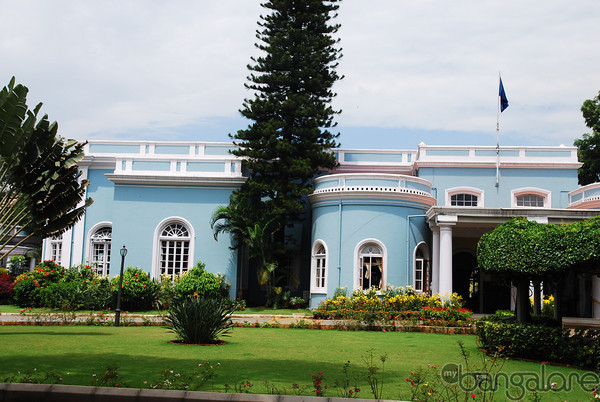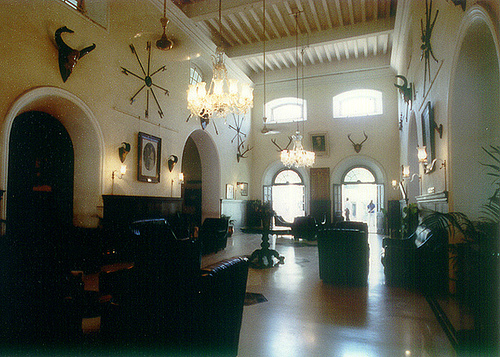The
year was 1896. A young Lieutenant, serving in the British army,
joined his new posting in a cantonment in India. This cantonment was
located near the southern Indian town of Bangalore. To be frank,
there was nothing unusual or special in this happening, for any
historian to take notice of this. Every month, perhaps hundreds of
such young British officers were posted, joined or left for some
other destination, from numerous such cantonments of British army in
India, on a continuous basis. However, it just so happened that the
same young Lieutenant, became Prime Minister of Britain later and
won the Second World War for his country. His name was Sir Winston
Churchill. Naturally after this, Lieutenant Winston Churchill's
posting at Bangalore Cantonment in 1896, became part of history.
By
end of eighteenth century, East India Company owned by Britain, had
assembled a large army to fight a war against kingdom of Tipu
Sultan. In 1799, British forces finally managed to defeat the Sultan
and annexe his kingdom to British India. To station this large army
on permanent basis, Bangalore cantonment was established in 1906.
This cantonment, spread over an area of 13 square miles housed
besides three squadrons of Artillery, soldiers of infantry, engineers
and cavalry units.
In
the life style of British people, clubs have a special status. Any
Briton of some standing, always belonged to some club or other, where
he could go in evenings have a drink and relax a bit. In all parts of
the world, wherever British set their foot, they managed to start or
set up such clubs. India was no exception. This concept of clubs took
roots in India and even after India gained independence from British,
all such clubs, set up by British, not only survived but have seen
good healthy growth in India. The British officers of Bangalore
cantonment had started one such club in the year 1868 and named it as
Bangalore club. Today, this club is well known as a club of high
class and prominent citizens of Bangalore. This club has managed to
maintain its décor and grandeur of nineteenth century, even today .
To obtain membership of this club is considered a matter of prestige
and honour even today by the residents of Bangalore. People from
other places, when they visit Bangalore for work, are seen giving
priority to find accommodation in this club, even when there are many
five star hotels in the city.
After
joining his unit in Bangalore cantonment, Lieutenant Winston
Churchill naturally joined the Bangalore club. Somehow, this young
officer hated the atmosphere in Bangalore cantonment. In his
autobiography he calls it dull and sleepy. In his own words he says
that Bangalore was “third rate
watering
place” with “lots of routine work” to do and “without society
or good sport.” He says that he spent most of his time in
Bangalore reading books and catching butterflies. It was therefore no
wonder that this bored British officer must have spent many of his
evenings in Bangalore over a few drinks.
In
those days, Bangalore club used to sell a large Whiskey for 7 Annas
and a small peg for 4 Annas. (One Indian Rupee was equivalent to 16
Annas during those days.) After 3 boring years in Bangalore,
Lieutenant Winston Churchill was finally transferred to Afghanistan
border. During the moving, he probably forgot to pay his outstanding
bill with the Bangalore club, which at that time amounted to 13
Indian Rupees. The Club's account books kept showing an outstanding
on his name.

Later,
Bangalore club wrote off this outstanding amount from its accounts.
But after death of Sir Winston Churchill, some one in the club found
these old ledger entries, which have suddenly become a matter of
prestige for the club. The Bangalore club has now framed this page
from its ledger and have put it on a wall in a prominent place. Many
British citizens subsequently offered to pay this amount to the club
and settle the account. The Bangalore club however refuses to accept
any such payment. The club rightly feels that the debt has a historic
importance and it has no interest in the settlement of the
outstanding bill.
There
is no doubt whatsoever in my mind, that one may not be able to find
again, another such famous prime minister, who has made a bad debt
and that too in an another country.
28
September 2012


When he accumulated the Debt he wasnt famous nor a PM;if this is the way to succeed wouldnt mind racking up such debts,especially at such clubs :)
ReplyDeletevivekdamle
Deleteworth trying! only risk is instead of fame, you might land in jail. Any way, thanks for response